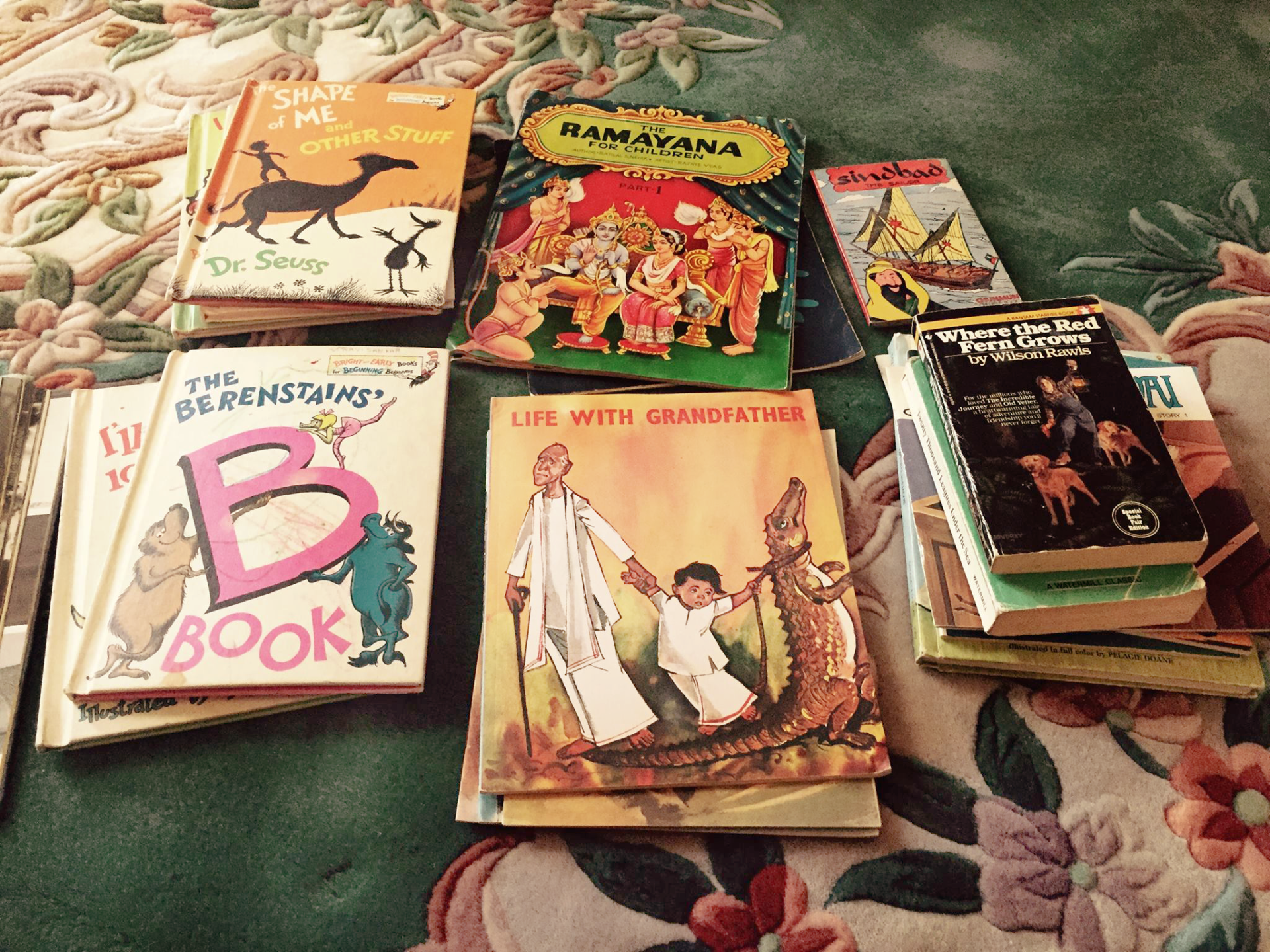Join us in celebrating Asian American/Pacific Islander Heritage Month! We’re highlighting AAPI literature and members of our state’s literary community—like Archana Vemulapalli, a great booklover, friend of TBF, and member of our board of advisors. Archana also serves as a board member on South Asian Austin Moms (SAAM), a non-profit organization founded in 2014 that hosts educational and cultural events with proceeds going to charitable causes that empower women and help children in the Austin community. Here, she recommends some of her favorite childhood books, along with some current favorites as well, with thanks to the small library that started it all.
**
In India where I grew up, our weekly visit to the library—which we walked or rode our bikes to, unchaperoned back in the day—could easily be one of my favorite memories. This library was unimpressive-looking, a small dingy room with dim lights. Amidst the million crammed books packed like sardines, there was a precarious little staircase that sprung out and spiraled up to an attic with more books. We had a plethora of choices, with writers from every corner of the world: Misha, a Soviet children’s magazine; Amar Chitra Katha and Tinkle, two popular Indian comic book series; Panchatantra Tales, animal-based original Sanskrit fables; plus Phantom, Marvel, Enid Blyton, Agatha Christie, Sherlock Holmes, etc. These books gave me unimaginable access to and understanding of the entire world. They left an everlasting impression on me and I want share some of my favorites—some from my childhood and others I read as an adult—by AAPI authors who give us glimpses into Indian culture living in different parts of the world, still bound by the same human emotions and connections.
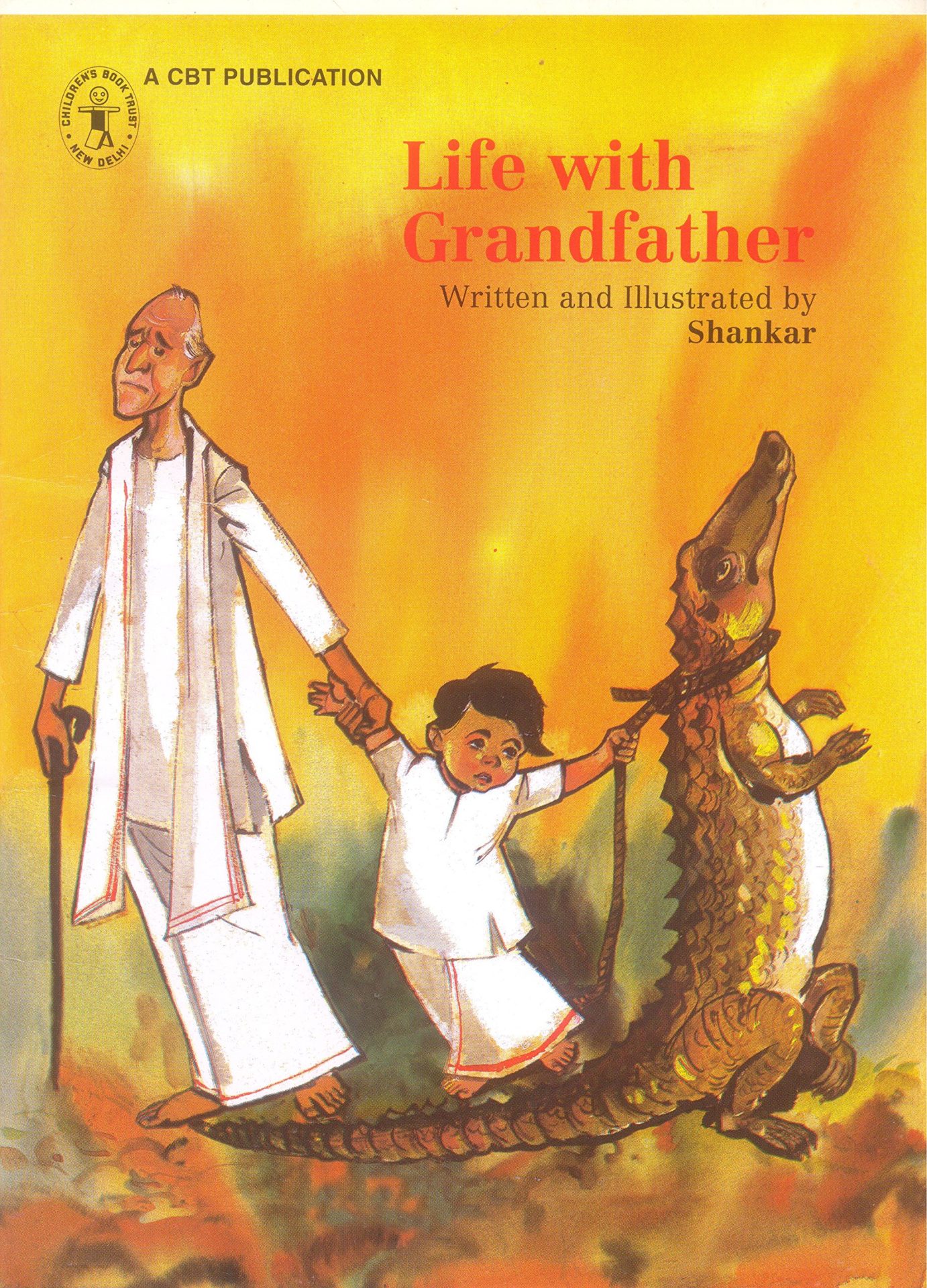 Life with Grandfather – written and illustrated by Shankar
Life with Grandfather – written and illustrated by Shankar
My grandfather—an erudite, respectable, charitable man who spent endless hours nurturing his precious grandchildren with stories and poetry, and imparting the morals of life through his inimitable humility, wit, and humor—had little in common with the titular character in this book. But what endeared me especially to this lovely picture book was the relationship between the grandfather and grandson. That bond between grandparent and grandchild, however different their personalities and stories, strikes a chord with anyone who’s had the good fortune to be close to their grandparents or some other guardian who cares for them. This book is long and lithe, like the grandfather in the story, and the reader can’t help but care for the two main protagonists: the stern stoic grandfather, a religious proper man and his cherubic little grandson who cannot help but get into mischief while his grandparents raise him with much love and a dose of discipline in a tiny idyllic village in rural India.
Malgudi Adventures – by R.K. Narayan
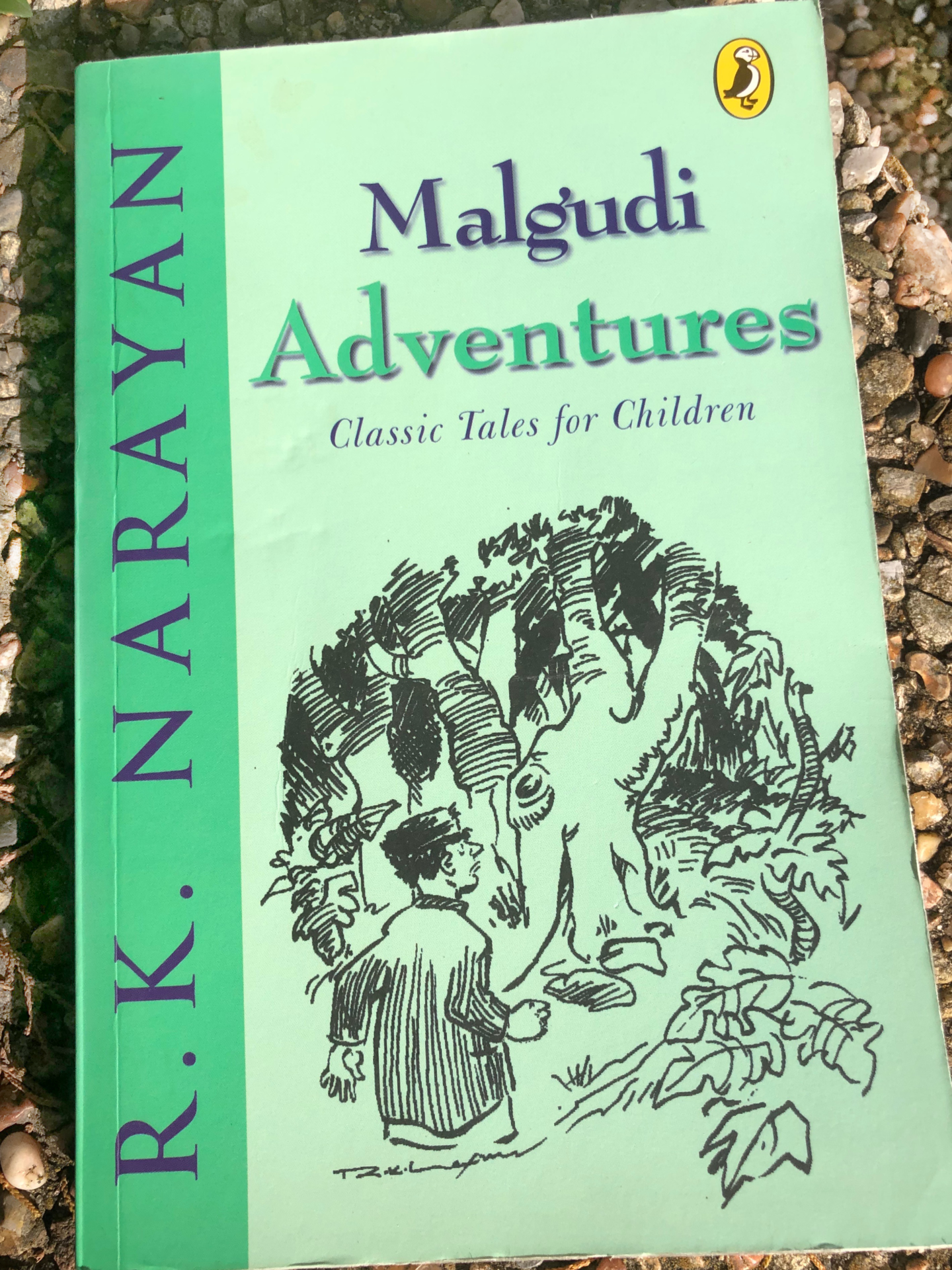
I was introduced to Malgudi Adventures and the genius of R.K. Narayan through a TV series based on his book (which instantly evokes the memory of this tune). R.K. Narayan is one of India’s most prominent authors and was credited with bringing Indian writing to the rest of the world. A good friend to Graham Greene and admired by stalwarts such as W. Somerset Maugham, John Updike, and Jhumpa Lahiri, to name a few. With comparisons to Faulkner, Dickens, Chekov, E.M. Forster, and Guy de Maupassant, R.K. Narayan was one of India’s literary geniuses. He had an amazing ability to write a rich portrait of the simple lives of regular people, with their humanity, trials, and tribulations—often with a subtle sense of humor that made his prose unforgettable and poignant. He is most fondly remembered for his short stories on Malgudi‚ a fictional semi-urban town in Southern India with stories about its people and community often through the eyes of children. His writing style is unpretentious and the memory of his stories last a lifetime.
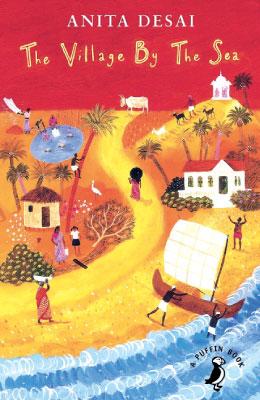 The Village by the Sea by Anita Desai
The Village by the Sea by Anita Desai
I still remember the first few pages of this cinematic novella. Set on the banks of a village by the sea, the book tells you the story of a young boy who lives in the village slum with his family and the hardships he endures, due to a father who is mostly drunk, a mother who is chronically ill, and the meager means by which they get by. The picture Desai paints with her words—of the beautiful village, life and nature in coastal India, even all the way to the sweltering chaotic streets of Mumbai—are breathtakingly beautiful, a visual treat of words. I can still taste the salt of the sea. The class differences and impact of urbanization come through in a manner so subtle, so well-crafted that I can still remember every detail of the experiences and emotions the little boy goes through. I cannot say enough about this book and highly recommend reading it.
Ara, the Star Engineer – written by Komal Singh, illustrated by Ipek Konak
This book is a real joy to read to my kids. The story follows a little girl working to solve a problem, with some help from a few amazing adult characgters based on real-life trailblazing women in technology. It’s a real treat to see the diversity in the book and to read about the real people behind the characters. I was especially impressed with how a problem so big—”counting the number of stars”—was broken down into simple steps teaching the basics of computing and programming. Towards the end of the book is attached a small chapbook of sorts that serves as a fascinating guide to code your own algorithm to solve a problem. Diversity of cultures, women powerhouses, a little girl interested in coding—what’s not to like? These are the kinds of books we need to see more of!
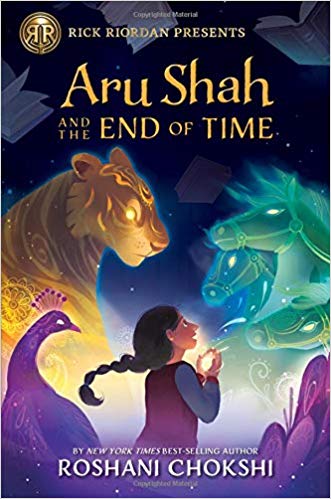 Aru Shah and the End of Time – by Roshani Chokshi
Aru Shah and the End of Time – by Roshani Chokshi
Supported and presented by Rick Riordan, Roshani Chokshi’s first novel in the series is for middle grade readers (though my eight year old daughter lapped it up). While Riordan’s Percy Jackson series delves deep into Greek mythology, Chokshi’s book is imbued with the influences she had as a child, growing up listening to mythological Indian stories (her father is Indian). The book brings us characters straight from The Mahabharata (the classic Indian epic poem and legend with incredible demons, gods and immortals) and tells the fascinating story of Aru, an unlikely heroine, with the backdrop of the Museum of Ancient Indian Art and Culture where her mother works. Aru unwittingly frees a demon and is thrust into a situation that forces her to embark on an adventure of a lifetime.

